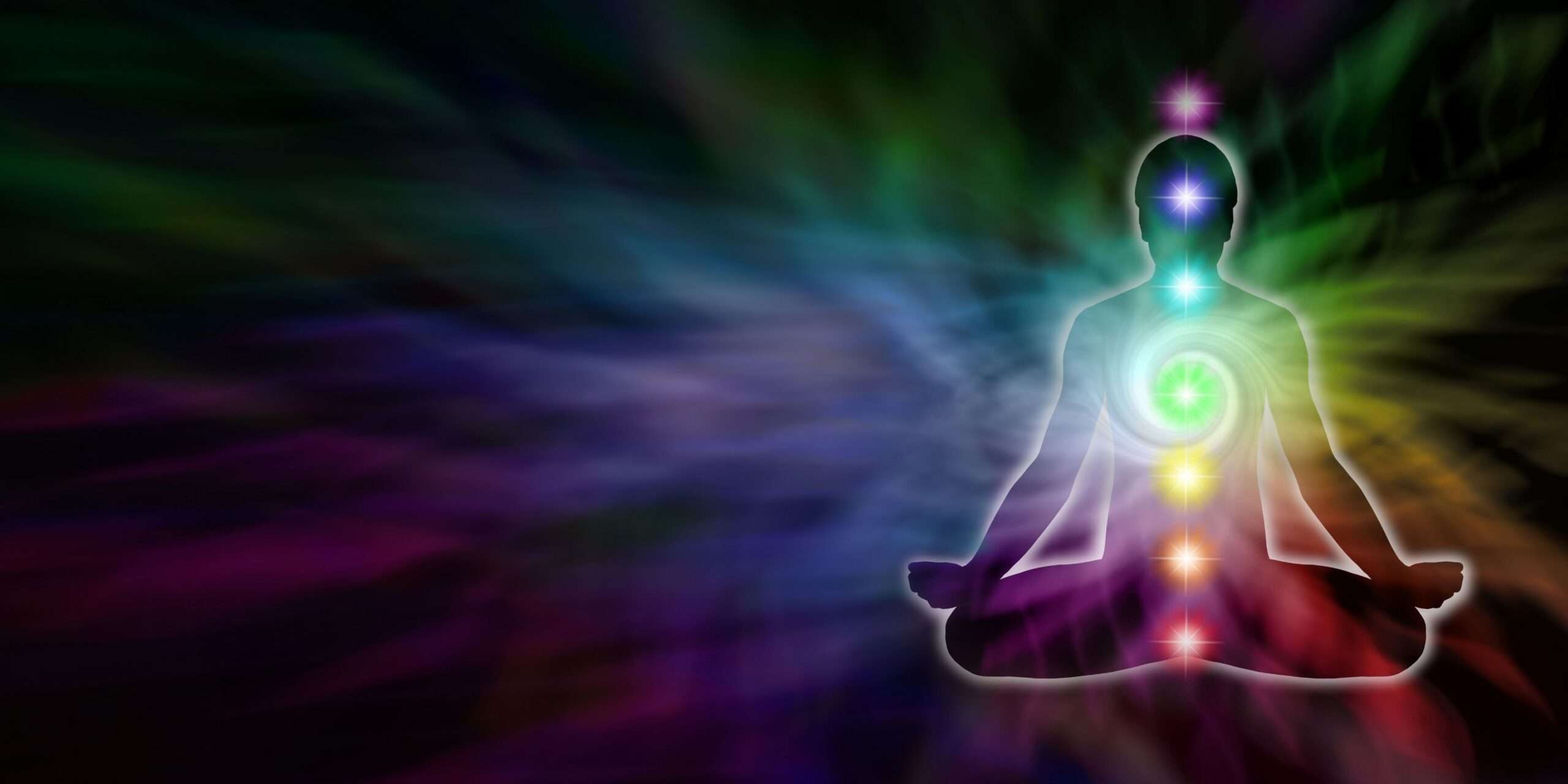The Beginner’s Guide To Chakras

The chakras are different colored energy centers that originate from seven different points in our body. Our emotions, ability to connect with others and physical health are thought to be reflected in the condition of each chakra.
Seeing your own chakras requires mental focus and powers of meditation. Remember these are imaginary entities that were invented by great mystics thousands of years before medical technology. The manipulation of these spheres or wheels of light, particularly the opening and brightening of them is thought, by many, to relieve a variety of ailments.
The Types Of Chakras
There are seven main chakra centers in the human body and the correspond with the seven colors of the rainbow or light spectrum:
The Red Chakra, also often referred to as the Root, First or Base chakra is at the base of the trunk of the body and is thought to correspond to the sex drive and to primal drives such as the desire to procreate, survive and destroy. If you are having troubles with your health, this is the chakra to work on.
The Orange Chakra, sometimes called the Second, Sexual or Spleen chakra is in the abdomen and relates to the lower digestive organs. It corresponds to our ability to physically digest and eliminate food, emotionally digest events, and process them in a healthy way and emotions such as joy or affection. This is the chakra to work on if you are having trouble letting go.
The Yellow Chakra, sometimes called the Third, Stomach or Solar plexus chakra is in the upper stomach area just below the rib cage. It is the center where we connect to others on an astral level and it relates to our abilities to transform or manifest events.
The Green Chakra is in the chest and is related to the lungs and heart. It is sometimes called the Fourth or Heart chakra. It represents the flow of energy and flow of love in our lives as well as our ability to connect to others.
The Blue Chakra, sometimes called the Fifth, Thyroid or Throat chakra relates to the immune system, the regulation of hormones. It represents our ability to communicate effectively with others as well as creative and personal expression.
The Indigo Chakra, sometimes known as the Sixth chakra or the Third Eye, is located just slightly above and between the eyebrows on the forehead. It is related to the pituitary gland and spiritual and mental processes, as well as intuition, second sight.
The Violet Chakra, also sometimes known as the Crown chakra, the Seventh chakra, the White chakra or the lotus chakra is located at the top of the head. It is thought to be the gateway or connection to the spirit world, ascended masters, and the higher self. It is the receptor of divine wisdom and divine inspiration.
The Flow Of Chakras
When functioning well, the chakras are thought to be a conduit for the constant flow of energy throughout our bodies. If these chakras are blocked, slowed in their spinning, darkened, or not working, then you can correct this imbalance by imagining them being cleared from negative energies such as trauma, resentment or fear.
Tuning up your chakras can make an enormous difference to your sense of well-being in general as they conduct the natural flow of energy through our bodies. Chakras that are blocked are thought to cause physical disease and spiritual and emotional dis-ease.
Common blockages are negative emotions, the desire to hurt, being emotionally hurt, and the holding on to of fears and resentment and sometimes past life issues.
The chakras interact with each other in a constant dancing of the spheres that extends outside our bodies. They exist in a constant state of renewal that can be enhanced by meditation, creative visualization, light working and breath work.



